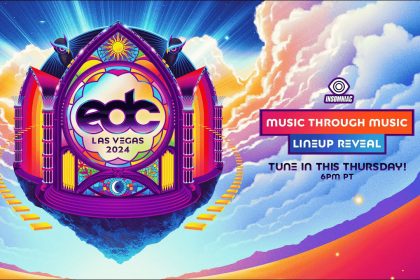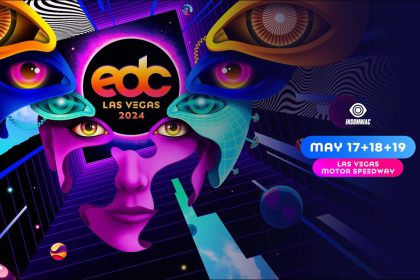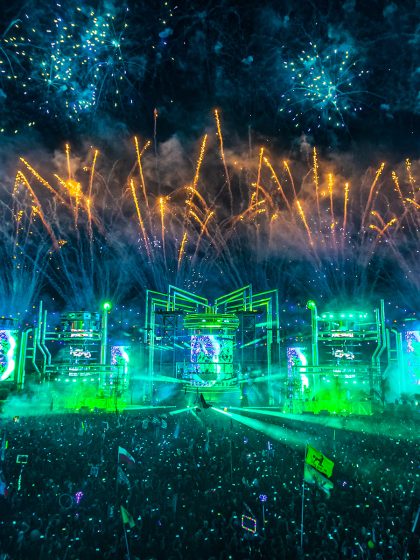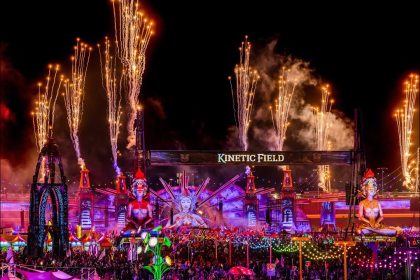Take a Journey to the funkHOUSE With Z-Trip
Many DJs tout how they like to take the crowd on a journey. But what fun is it when they’ve got the whole thing already mapped out? Isn’t part of the adventure turning off, exploring random spots, and discovering new music? Without fail over his extensive career, turntablist Z-Trip has been all about delivering curveballs to keep you on your toes and give you those “Hell yeah” moments. I caught up with the mix master backstage at EDC Las Vegas 2015 before night one of his three-night run at the newly introduced funkHOUSE.
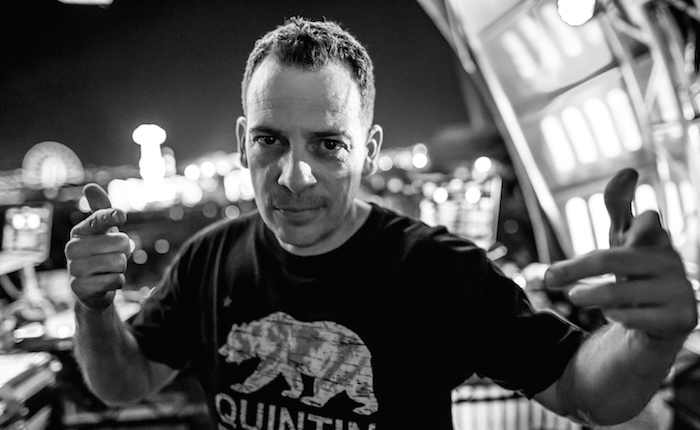
What is the new funkHOUSE stage all about?
The funkHOUSE is awesome because it’s sort of like digging for records. Like when you’re looking for that James Brown record—you don’t know where it is, and it takes you two months to find it. We’re kinda like that James Brown record that’s in the back corner. You need to uncover it, and once you pull it out, you go, “Holy shit!” You put your needle on it, and you’re like, “This is where all this shit came from.” That’s what the funkHOUSE is. We’re sort of the backbone of this whole thing, because it’s all based off of this style of music that branched out and turned into what it is today. It’s a little bit of throwback, but a little bit of origins.
You’ve played EDC for years, even though you don’t fall into the electronic dance music realm. What’s the experience been like for you?
We were always sort of the “back room.” Because I didn’t play four-on-the-floor, 28-BPM house or techno, we were always put in the other room, and that other room ended up becoming its own thing. A lot of the times, we would be going so hard in that other room we would pull everybody from the main room because it was cracking. Somehow over time, those rooms were forgotten and shoved so much out of the mix. You have the drum & bass room, you have the trap stage, the techno stage, and there wasn’t really a place for hip-hop and breaks and that stuff to live. So they’re bringing it back, and it’s really fun because we’re born from that room.
“It’s really great to have a different channel on the station.”
I’ve gone to the mainstages, and I can pretty much do what all these guys do musically, but it’s really tough to get them to come and do what we do musically. We get to showcase an art form and where it comes from; [it’s good] for people who are inquisitive and might have been to every EDC and are looking for something else. We become the alternative, which is interesting because I was talking with Tommie Sunshine about how the loop is actually coming back around and re-looping itself. This is like the glue to the next phase, because people hopefully will start researching and hopefully start spawning new things. It’s liberating; I can do what I want to do here, and I don’t have to slug in the hottest Beatport Top 10 tunes in my mix, because they’re all covering that on the other stages. I’m over here playing tracks and remixes and edits of things based around where we came from. It’s really great to have a different channel on the station.
“Do something different.”
You were on this year’s artist panel at EDMbiz, and the discussion got very interesting when you all debated the art of DJing and what turntablists such as yourself bring to the tables. For those who weren’t there, what were some of the talking points?
It wasn’t like I went in and was trying to rattle the cage; but the topic came up of spontaneity in sets, improvising, and doing stuff on the fly, and taking people on a journey. Jason Bentley brought up the fact that when he went and saw Kaskade play the other day, he could really hear him DJing. I stopped Jason, and I was like, “Isn’t that what it’s supposed to be all the time?” That should be the epitome of it. That brought up the idea of pre-programmed sets and hitting a couple buttons—as opposed to making it up as you go.
That’s what I think is missing. I asked everybody, “When’s the last time you heard a DJ miss a mix and find it and get back on?” You have this vested interest, and you feel it, and it sways, and there’s movement. Everything’s not beat-gridded and locked out.
I brought that up, and 3LAU said, “Well, it’s kind of like David Copperfield: He’s not going to do an impromptu trick in the middle of his set.” Then Nicky Romero was like, “Well, it’s kind of like when Beyoncé…” and I just had to stop him and say, “We’re not David Copperfield or Beyoncé, motherfuckers. We’re DJs! We’re up here, and we’re supposed to take these people on a journey. We’re supposed to have the ability to adapt and connect.”
Not to say that those guys don’t. I want to be clear about that, because I was just making a point, and maybe it got a little blown out of context. But I was just saying that’s the kind of DJing that I miss and wish there were more of it, because I like to dance and be taken on a journey. [It’s] more than the production and the pyro landing on a cue. It’s [about] connecting with the crowd and making sure they leave with something unique and different and special—that you don’t sound like all the other guys playing the hits. Do something different.
You show up to the stage hours before your gig. Why do you feel that’s important when so many other big DJs arrive minutes before their set time?
I don’t know why they don’t do it. For me, it’s part of my job. I could show up and just play, but I want to hear what the other people have played. I want to know what worked and didn’t work. I want to study the crowd. I want to catch a vibe. I’m a fan. I say, “What would I want to dance to? What would I do here?” You have to study it. It means something to me. I could be lazy and hit a couple buttons and just show up and go, but I give such a shit about this stuff. I want to make sure all the pistons are firing. It’s the work ethic I take with me everywhere.
Follow Z-Trip on Facebook | Twitter

